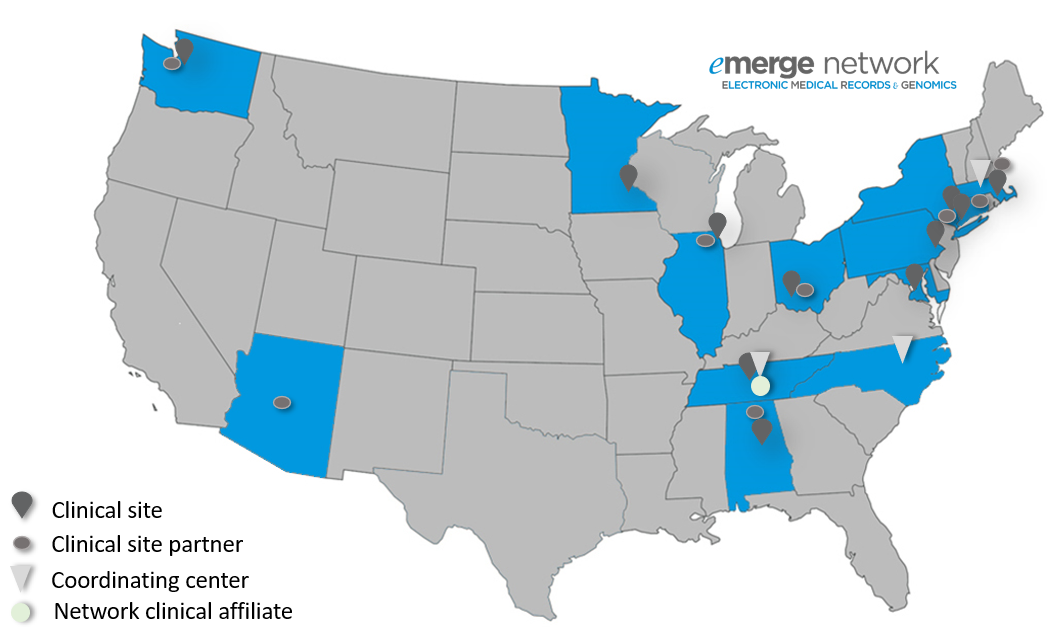eMERGE is a national network organized and funded by the
National Human Genome Research Institute (NHGRI) that combines DNA
biorepositories with electronic medical record (EMR) systems for large
scale, high-throughput genetic research in support of implementing genomic
medicine.

Many factors contribute to risk of a disease. Some of these factors are internal,
like genetics, and others are external, like where someone lives. Over the last several years
researchers have discovered that in addition to one gene being associated with a given
disease (monogenic factors), many genes across your genome can contribute to the development
of a disease (polygenic factors). To learn more about elements that contribute to risk a disease,
click here.
Latest News
MAGen NOFOs published
May 5, 2024 3:13 PM
NIH Funding Announcement: Research Opportunity Announcement (ROA) “Integrating Clinical Research into Primary Care Settings through Network Research Hubs – A Pilot (OT2)”
May 5, 2024 3:12 PM
Webinar: NIH Grants Process: Walk-Through for Beginners
May 5, 2024 7:47 PM
NOSI: Supporting the Exploration of Cloud in NIH-supported Research
April 4, 2024 4:31 PM
NOITPs are published
April 4, 2024 4:30 PM
eConsult NOFOs released
January 1, 2024 7:19 PM
Recent Publications
Belloy ME, Guen YL, Stewart I, Herz J, Greicius MD, et al. The Role of X Chromosome in Alzheimer's Disease Genetics. medRxiv : the preprint server for health sciences. 2024 Apr 23;.
Lin YC, Zhang S, Vessels T, Bastarache L, Xu Y, et al. Overcome the Limitation of Phenome-Wide Association Studies (PheWAS): Extension of PheWAS to Efficient and Robust Large-Scale ICD Codes Analysis. medRxiv : the preprint server for health sciences. 2024 Apr 19;.
Mosley JD, Shelley JP, Dickson AL, Zanussi J, Kawai VK, et al. Clinical associations with a polygenic predisposition to benign lower white blood cell counts. Nature communications. 2024 Apr 22;15(1):3384.


